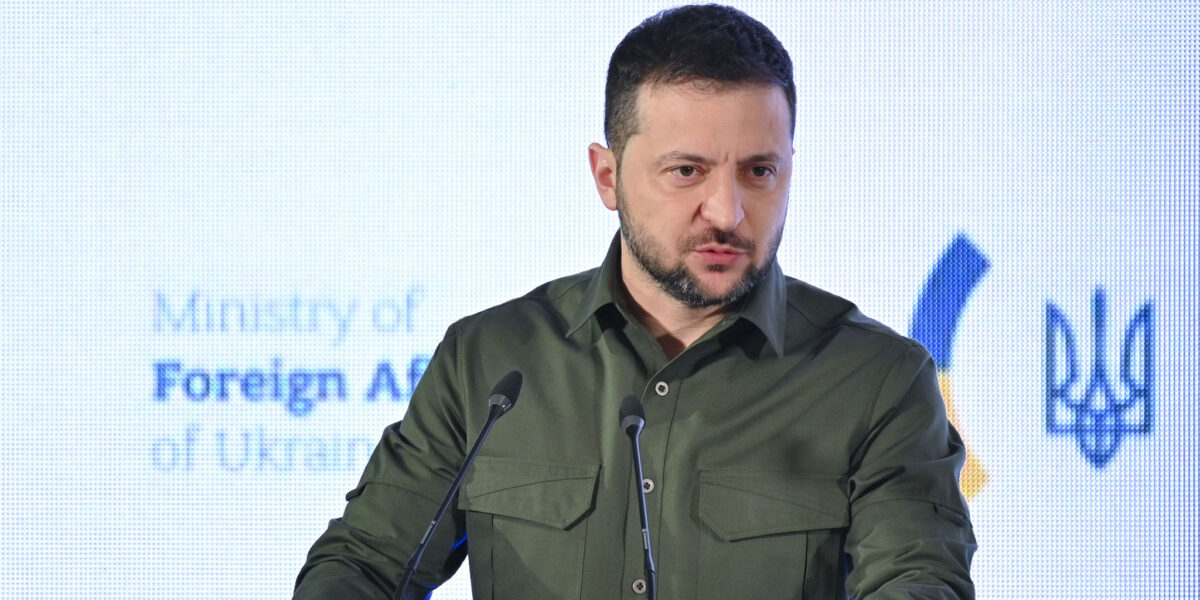On June 14 defence minister Anita Anand tweeted, “Ukraine is fighting for its territorial integrity, sovereignty — and for democracy itself.”
During a trip to Ukraine a few days earlier finance minister Chrystia Freeland declared, “In fighting for their lives and their sovereignty, the brave people of Ukraine are also fighting Canada’s fight — the fight for democracy.”
Freeland’s rhetoric about democracy began before Russia’s illegal invasion. In November 2019, the same month she backed ousting Bolivia’s elected president, the then foreign affairs minister declared that Ukraine was at the “forefront of the struggle between democracy and authoritarianism” and that “modern Ukraine is the country where the struggle is ongoing and the future of the rules-based international order and genuine democracy in the world will be determined.”
It’s absurd to suggest that the war in Ukraine or Canada’s role in it is about advancing democracy. While efforts to turn Ukraine into an anti-Russian bulwark began before the demise of the Soviet Union, the war in eastern Ukraine started with the U.S.-backed ouster of an elected president.
Despite Canadian election observers endorsing Viktor Yanukovich’s victory in 2010, Ottawa helped overthrow him in 2014. The Harper government immediately sought to destabilize a president opposed to Ukraine joining NATO.
During the Maidan protests, opposition forces – including the far-right C14 – used the Canadian Embassy in Kyiv as a staging ground for more than a week in their successful bid to topple Yanukovich.
The president’s ouster led to a wave of right-wing nationalist violence and political repression. On May 2, 2014, neo-nazi “Right Sector” militants killed over 40 “anti-Maidan” (pro-Yanukovich) demonstrators in a fire at the headquarters of the Odessa Federation of Trade Unions. No one has ever been held accountable for the horrific crime.
In 2015, three Ukrainian communist parties were banned, including one that received over 13 per cent of the vote in the 2012 parliamentary election. Some media outlets were also targeted.
After Yanukovich was ousted, U.S. polling showed that a strong majority of Crimeans wanted to be part of Russia. Polling also demonstrated that people in the Russian-speaking Donbass region wanted greater independence from Kyiv or to join Russia. But Ottawa has been deeply hostile towards the popular will in those regions.
Running on a peace and anti-corruption platform, Volodymyr Zelenskyy crushed hardline nationalist president Petro Poroshenko in the 2019 election. But his early effort to end the fighting in the east was stymied by the far-right and security forces empowered by the U.S. and Canada.
Subsequently, Zelenskyy did a u-turn, pushing ever more repressive policies. With Washington’s backing, he shuttered three television networks in February 2021 that had been sympathetic to his call for peace but criticized his shift in policies. He then imprisoned the leader of his party’s biggest rival.
After Russia’s illegal invasion, Zelenskyy imposed martial law. Basic civil liberties have been suspended and the media is under direct government control. Eleven political parties were suspended, including the largest opposition party.
In Canada and other countries, those pushing to expand Canada and NATO’s role in the fight have sought to suppress debate and civil liberties.
The Ukrainian Canadian Congress has pursued a concerted campaign to shut down speaking events across the country while the Ukrainian Embassy in Vienna recently convinced the city’s trade union council to cancel the room booking for the International Summit for Peace in Ukraine.
A Radio New Zealand reporter was recently dismissed for their “pro-Russia editing” of wire copy while members of the African People’s Socialist Party in the U.S. were indicted as Russian agents two months ago.
In Lithuania, they have disenfranchised Russian speakers while last week Czech President Petr Pavel said Russians in the West should be “monitored” like Japanese during World War II. (During WWII the US interned over 100,000 people of Japanese descent while Canada detained 20,000.)
If you broaden the lens of analysis, the claim that Canada’s motivation in Ukraine is about advancing democracy is even harder to sustain.
In 2019, Freeland supported the ouster of Bolivia’s first Indigenous president. Hours after the military command forced Evo Morales to resign on November 10, Freeland released a celebratory statement declaring, “Canada stands with Bolivia and the democratic will of its people.”
Ottawa provided significant support for the Organization of American States’ effort to discredit Bolivia’s 2019 vote, which fueled opposition protests and justified the coup.
“Canada commends the invaluable work of the OAS audit mission in ensuring a fair and transparent process, which we supported financially and through our expertise,” noted Freeland at the time.
But the OAS audit mission was designed to precipitate Morales’ ouster. A slew of studies demonstrated the partisan nature of the OAS audit mission, and a year later, Morales’ former finance minister, Luis Acre, won 55 per cent of the vote for president and his MAS party took a large majority in the Congress.
In December, the Trudeau government backed the ouster of elected leftist Peruvian president Pedro Castillo. Canadian officials immediately justified Castillo’s removal and Canada’s Ambassador to Peru, Louis Marcotte, worked hard to shore up support for Dina Boluarte’s replacement “usurper” government.
As Owen Schalk and I demonstrate in the forthcoming Canada vs. Democracy: A History of Canadian-Backed Coups, Ottawa has actively or passively backed the removal of more than 20 elected governments. Our main ally in Ukraine, the U.S., has been involved in many more coups.
One has to be extremely naïve to think Canada’s engagement in Ukraine is about democracy.



